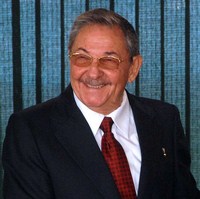On March 8 in Caracas, Raúl Castro, looking somber, stood in a place of honor beside Hugo Chávez's casket during the late Venezuelan president's state funeral. Castro was no doubt pondering what Chávez's death means for Cuba's ambitious economic reform program -- or "updating" of the economic model, as Cubans prefer to call it. Not long after Chávez's first election victory in 1998, he and Fidel Castro signed the first of what would become more than 100 bilateral cooperation agreements. By the time Chávez died, Venezuela was providing Cuba with some 110,000 barrels of oil daily at subsidized prices, worth $4 billion annually and representing two-thirds of Cuba's domestic oil consumption. In exchange, Cuba provided some 40,000 skilled professionals, working mostly in health, enabling Chávez to extend health care into the poor barrios of Venezuela, thereby solidifying his political base.
With the Venezuelan economy foundering under a huge fiscal deficit, will Chávez's successor continue this barter arrangement on the same preferential terms? If not, will the resulting oil shock derail Raúl Castro's plan to move Cuba from a hyper-centralized planned economy, which even its architect Fidel Castro admitted no longer works, to a socialist market economy modeled on Vietnam and China?
Since he succeeded Fidel in 2006, Raúl Castro's foreign policy has had three key components: first, to diversify Cuba's international economic relations so that the disruption of ties with any one country will not throw the economy into chaos; second, to build diplomatic support both regionally and globally through active participation in a wide range of international organizations; and third, to pursue normal relations with the United States, reducing the threat Washington poses to Cuba's security and opening the doors to expanded trade and investment. Cuba’s quandary in the post-Chavez era both underscores and heightens the significance of all three of these priorities.

